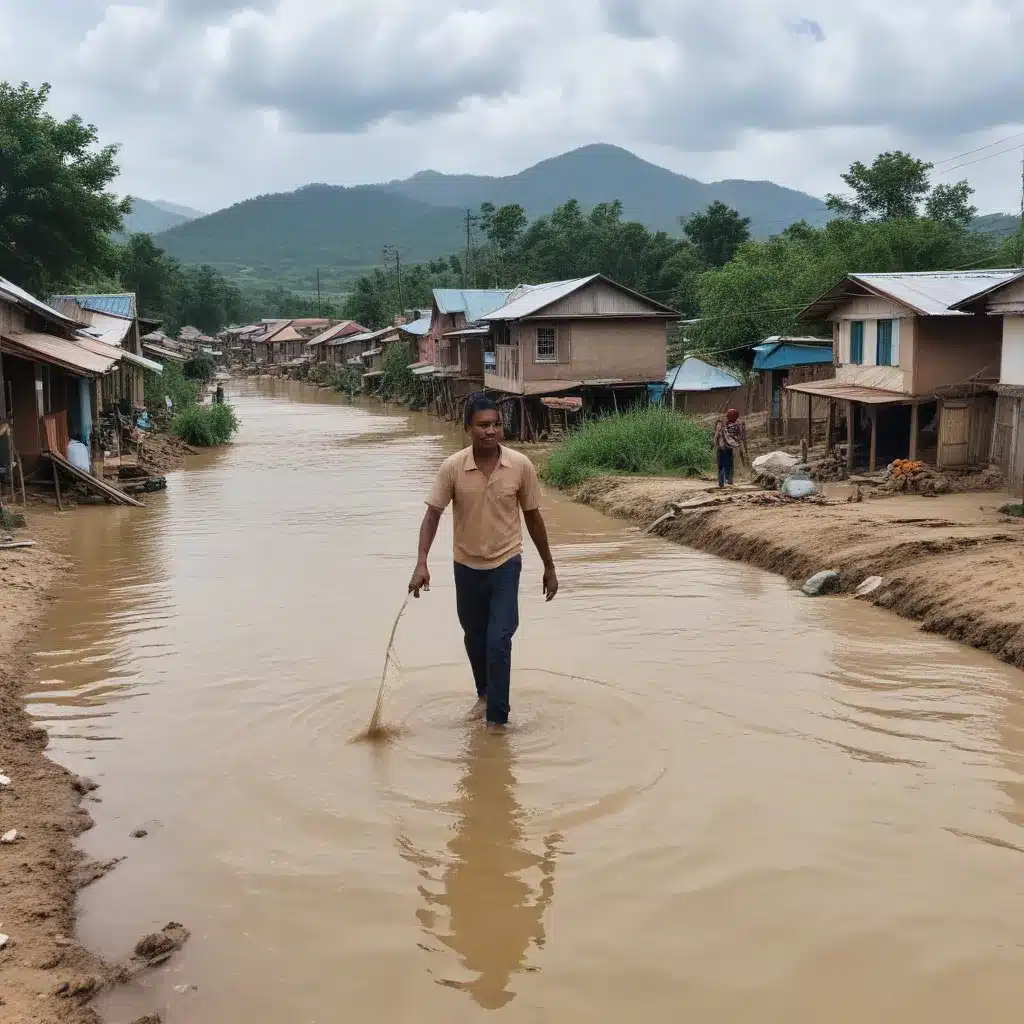
Navigating the Complexities of Water Damage Restoration
As an experienced water damage restoration specialist in Orlando, I’ve seen firsthand the profound impact that flooding can have on our community. Time and time again, I’ve witnessed the resilience and determination of local residents as they work to rebuild their homes and businesses in the aftermath of devastating water events. However, I’ve also observed the challenges and limitations that can arise when recovery efforts fail to truly empower and engage the community.
One of the most crucial lessons I’ve learned is the vital role that local knowledge and community-based initiatives play in effective flood recovery and disaster management. While technical expertise and top-down support are certainly valuable, it’s the grassroots efforts and deep understanding of the local landscape that often prove to be the most impactful.
Harnessing the Power of Community Engagement
In the aftermath of a major flood, it’s the members of the community who are often the first responders, mobilizing to provide aid, assess damage, and begin the process of recovery. These local actors possess a wealth of knowledge and experience that can be invaluable in guiding the restoration and rebuilding efforts.
One powerful example that comes to mind is the role played by the Koori Mail, an Indigenous newspaper serving the Bundjalung region in Australia. When catastrophic floods hit the area, the Koori Mail’s staff and the community behind it were able to leverage their previous disaster response experience to coordinate relief efforts and support the most vulnerable members of the population. Without their quick action and intimate knowledge of the local context, the recovery process would have been far more challenging.
Similarly, in my work in Orlando, I’ve witnessed the remarkable contributions of local organizations and community leaders. Whether it’s the Jali Local Aboriginal Land Council coordinating rescue efforts or the Rekindling the Spirit health service providing essential medical support, these grassroots groups have proven to be invaluable partners in the disaster recovery process.
Embracing a Whole-of-Community Approach
The key to successful flood recovery, in my experience, lies in embracing a whole-of-community approach that empowers local stakeholders and leverages their unique knowledge and capabilities. This means moving beyond the traditional top-down model of disaster management and instead working in close collaboration with community members, local government, and non-governmental organizations.
FEMA’s guidance on equitable recovery for local officials and community leaders highlights the importance of this community-centric approach. By recognizing and amplifying the voices of those most affected by disasters, we can ensure that the recovery process is tailored to the specific needs and priorities of the local population.
In Orlando, this might look like partnering with neighborhood associations to map out vulnerable areas, working with faith-based organizations to provide culturally appropriate shelters, or collaborating with small business owners to develop targeted support programs. By fostering these meaningful connections and tapping into the community’s collective wisdom, we can create a recovery strategy that is truly responsive and sustainable.
Overcoming Challenges and Barriers
Of course, transitioning to a more community-driven model of disaster management is not without its challenges. There can be issues around resource allocation, coordination between various stakeholders, and even political tensions that can impede progress.
One common barrier I’ve encountered is the tendency for top-down initiatives to overlook or undervalue the local knowledge and practices that communities have developed over generations. As the research from Nepal highlights, these traditional approaches to flood risk management are often sidelined in favor of more technical, standardized solutions.
However, I’ve learned that by actively incorporating local knowledge and empowering community members as true partners in the recovery process, we can create more holistic, effective, and sustainable solutions. For example, by blending modern early warning systems with the community’s deep understanding of environmental cues and seasonal patterns, we can develop robust preparedness measures that are tailored to the local context.
Building a Resilient Future
The devastation of floods is not limited to Orlando; it’s a challenge faced by communities around the world. As we grapple with the increasing frequency and intensity of these events due to climate change, it’s clear that a new approach to disaster management is needed.
By embracing a community-based model that empowers local stakeholders, we can not only improve the efficiency and effectiveness of flood recovery efforts but also build long-term resilience within our neighborhoods. When communities are actively engaged and their voices are heard, they become true partners in the process, taking ownership of the solutions and ensuring their sustainability.
At Orlando Water Damage Restoration, we are committed to this holistic, community-driven approach to water damage restoration and emergency services. We work closely with local organizations, government agencies, and individual residents to develop tailored solutions that address the unique needs and challenges faced by our community.
Whether it’s collaborating with neighborhood watch groups to identify high-risk areas, partnering with faith-based organizations to establish emergency shelters, or providing training and resources to empower community members as first responders, our goal is to create a resilient and well-prepared Orlando that can withstand and recover from even the most devastating floods.
By harnessing the power of local knowledge and community engagement, we can not only bounce back from disasters but also emerge stronger and more united as a city. It’s a vision that I’m deeply passionate about, and one that I believe holds the key to a more resilient and equitable future for all.
So, if you’re a homeowner or business owner in Orlando facing the threat of water damage or flooding, I encourage you to reach out to your local community organizations and get involved in the disaster preparedness and recovery efforts. Together, we can build a stronger, more resilient Orlando that is ready to weather any storm.

